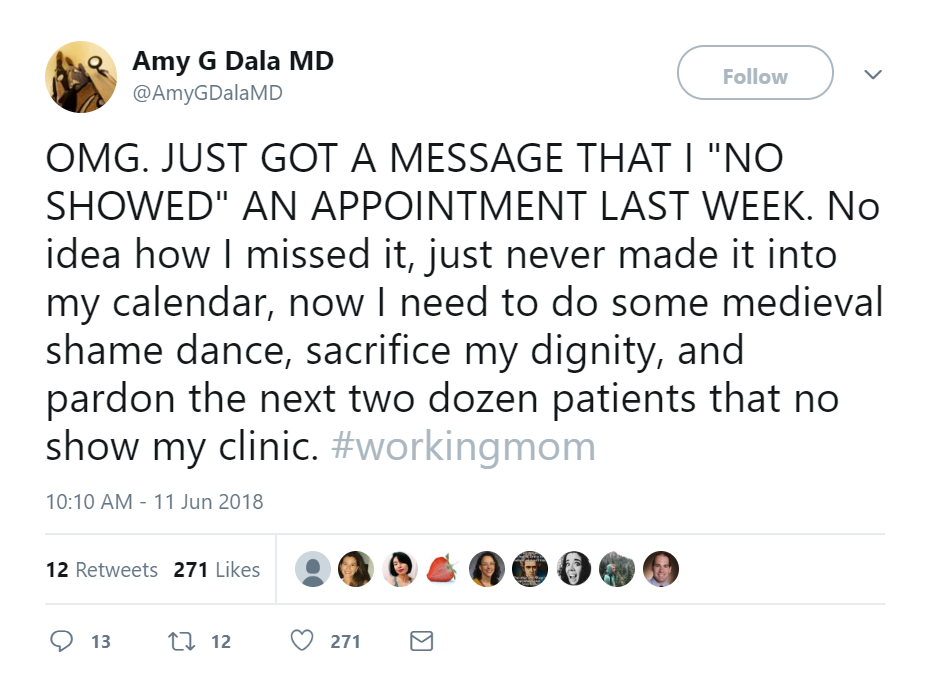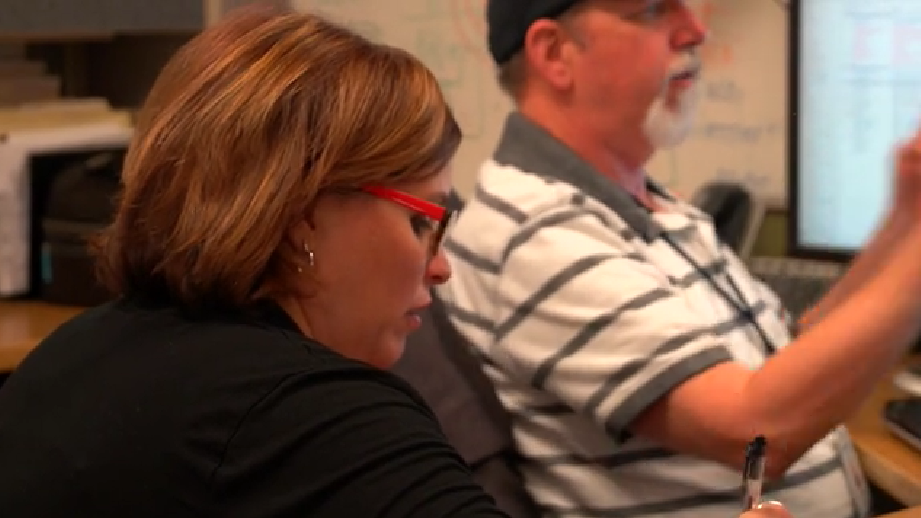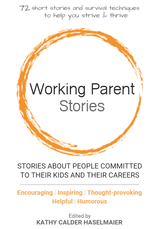|
Inspired by an NPR Here and Now segment with Kathy Gunst Disclaimer: I have prepared very little food since college. It's not an activity I learned to enjoy, and people are rarely enthusiastic about the meals I prepare for them. I know this isn't "normal", and I have my excuses. Still, there are some ideas below that might help you. Yesterday morning a (6 min) NPR radio segment caught my attention; it was called, "Easy Recipes To Try When School Starts Up And Time Tightens". NPR's Here and Now resident chef, Kathy Gunst said, "If you hate making dinner, you gotta shift your head first." That got me thinking.
What if everyone in the family was on the look-out for good recipes? What if everyone in the family was incented to improve the efficiency of meal prep? What if everyone had to figure out which meals needed to be served on-the-go to accommodate activities and commitments? How would that look like in the future? Would your kids complain about this forced family time and how it harmed them? (They might!) Or maybe they'd have a collection of memories that others would envy. Maybe they'd learn valuable teamwork skills. Maybe they'd become especially hospitable as college students and adults. Could this serve them well as guests, spouses, or friends in the future? I wouldn't know. I don't have these skills, and we didn't go this route. But, if we had it to do all over again, I think we might give this a try.
0 Comments
Pointer to HP video and some statistics How many parents work outside the home in the US? We asked ourselves this question after watching a new and enlightening video made by HP; they asked a group of people, "What does the 'All-American Family' look like?" Then they shared some information that we found surprising. It got us thinking, so we went digging for more data. According to the US Bureau of Labor Statistics, within families that have children living at home (< 18 years old), these are the parents who worked outside the home in 2017:
View the BLS report Now you know even more about All-American Families; they are working hard.
When you do a lot of reading about working parents (like we do), there are a few topics that surface consistently, and one of them is guilt. Interestingly this word is rarely associated with working fathers. But it is common to read about working mothers who claim they are racked with it. I find this surprising and confusing. It's not that surprising (at least to me) that some people want working mothers to feel guilty. I get it, and I've met those people. Some people fear change, like the changes that have been occuring over the last 50 years as mothers' work has transitioned from home-based work, to less work (think washing machines and dishwashers), to paid work outside the home. Apparently those who are bothered by these changes want to either slow the pace of change or stop it completely so they try to convince mothers that it is somehow wrong when they strive to make contributions beyond the home and family. (Unless it's volunteer work. Apparently everyone admires volunteer work.) Dictionaries vary slightly when it comes to defining the word "guilt". For the purpose of this article, I prefer the definition found in the Cambridge English Dictionary; "a feeling of worry or unhappiness that you have because you have done something wrong, such as causing harm to another person". I get that some don't like change and want to discourage mothers from pursuing careers. Maybe they want to justify their own choices. Maybe they can't see how a mother's career, just like a father's career, can provide benefits for the children she is raising. Or maybe they don't like the fact that the presence of women often changes a work environment. But here's what I don't get; why do women waste time wrestling with these crazy and out-dated judgments? Given all of the research that shows that women who pursue careers often raise kids who become capable, happy adults (and sometimes the most capable, happy and fairly paid when they pursue careers of their own), isn't it crazy to feel guilty about working today? Some claim that a mother shouldn't work if her spouse makes enough money to cover necessities for the family. And I've never (and I mean never) heard anyone claim that a man ought to cut back the hours he works if he makes more than enough money to cover his family's necessities. I've also never heard anyone suggest that a father shouldn't work if his wife is able to support the family (although I do know of a few men who abondon their careers when this is true). If we're going to stop associating the word guilt with working mothers, and please, let's do this, mothers need to lead the way. If you are a mother (or father) and truly feel guilty about working (meaning you actually believe that you are hurting someone via your career) quit your job! A feeling of guilt implies you know you are doing something wrong and you shouldn't be doing it. So don't do it! Otherwise, don't let people scam you.
A somewhat comforting Tweet Most working parents are pretty good at managing logistics, especially schedules. If they're not naturally organized, most are able to manage at least the basics over time (out of necessity). That said, even the most organized among us makes a mistake every now and then. Which is why we found this Tweet somewhat comforting when we ran across it earlier this summer: Sometimes it's just nice to know we're not alone. Thank you for sharing, Dr. Dala!
Pointer to an inspirational video about biomedical engineer Amanda Miranda Working parents are often pleasantly surprised to learn that many things they learn on the job help them become better parents. And sometimes their experiences as parents help them become better employees, business owners, and caregivers. Only some have experienced the deep pain associated with losing a child and even fewer hare able to channel some of the associated learnings from that experience in ways that benefit their companies and other parents. But Amanda Miranda has done just that as a biomedical engineer with Medtroics. Read her story and watch the video about how she took advantage of a Medtronic program called Career 2.0 when she returned to work as a biomedical engineer after she and her husband lost their four-year-old son, Johnathan.
Three stories Recently we raised the topic of "Shared Parental Leave" in the story Mind The Gap. Earlier this year, the UK government launched a campaign to encourage more parents to consider shared parental leave options, and they published commentary from three couples with experience; Kate and Dominic, Andy and Emma, and Tom and Christina.
Check out the short stories if you want to hear about their experiences. Observation Parents regularly experience conflicting emotions. That's part of life. Good friends and supportive relatives listen sympathetically when we describe lumps in our throats after watching our child walk into a school for the first time, getting behind the wheel of a car for the first time, bounding into a college dorm after a holiday weekend, or accepting a job far away from home (or at least that place they used to call home). These people understand that while we may have fought back tears, we're also swelling with pride. We wouldn't have it any other way. These milestones mean that we've done our jobs, and truth be told, we fear the alternatives. Being able to experience sadness and joy at the same time proves that we're alive and that we have feelings. It's normal. So it is with great enthusiasm that I report on a growing trend I've noticed among young working parents; they seem very comfortable saying things like, "I was so sad when I dropped him off at daycare for the first time this morning, and it was so great to see my co-workers again after being gone for so long." Not so long ago it wasn't OK to express these conflicting emotions. But apparently now it is. That's progress!
Related stories:
Ideas from Lucas Casarez, Certified Financail Planner ™ In the recent story Do The Math, we explained that when a working parent walks away from a career, even for just a few years, the cost is often greater than the lost income during that time. If you are a working parent who is concerned about the cost of childcare and/or considering a multi-year exit from the job market, you may want to consider the following thoughts and ideas.
Related story:
Insights from Lucas Casarez, Certified Financail Planner ™ It's not unusual to hear a working parent lament the high cost of childcare, and some even consider quitting their jobs to care for their children full-time explaining that "It doesn't make sense for me to work if all my money goes for daycare." But that's probably not true; even if the cost of daycare is equivalent to 50% of your family's take-home pay, it's short-sighted to opt out of the workforce for even a few years if you consider the situation from a purely financial perspective. If you're looking for a reason to quit your job, and want to blame it on your paycheck, this story isn't for you. Consider the Big Picture Even if 50% of your family's take-home pay is needed to cover the cost of childcare, don't forget that your job probably provides other compensation; things like social security contributions, 401(k) contributions and possibly matches, insurance benefits, stock purchase benefits, and training, not to mention the fact that you're increasing your experience and theoretically becoming more valuable and employable every year. If you opt out of the job market for a few years, you may also miss out on pay increases and possible promotions. Long-term Impact (It may be greater than you think) Here's one, overly simplified, example. Assume that a working parent earns* $50K/year, contributes to a 401(k) plan, receives a 3% 401(k) employer match, and receives 3% pay increases each year. A quick (and incomplete) calculation may lead you to think that a decision to take a five year "break" from work would "cost" $250K (i.e. $50K/year x 5 years). But given the time value of money, plus the cost in terms of lost salary increases and benefits, the actual cost, by the end of a 35-year career, is more like $664K. And maybe that's OK. But if it's not, be sure you're doing the big picture math! Chances are that each year you spend away from your job will reduce your earnings (and savings) for the rest of your career. When you consider the cost of taking a break from your career, be sure to do the math and take the long-term view. * For the sake of simplicity we've ignored taxes, all non-401(k) benefits (e.g. health and other insurance assistance, stock savings plans, bonuses and/or profit sharing, educational benefits, and professional training, and promotions). If you receive these benefits, a career break will cost you even more.
Related story:
Pointer to funny Jimmy Kimmel video When our kids were little and our lives were especially frantic, we used to joke that our daughter managed many of the details required to keep the house humming. Of course that was a bit of a stretch, but she did seem to keep track of a surprising number of them. Apparently Jimmy Kimmel had a similar experience recently while driving his 4-year-old, Jane, to pre-school. You can hear his story in this video.
|
The StoriesArchives
March 2022
Categories
All
|
Photos from barnimages.com, marcoverch, truewonder, donnierayjones, marcoverch, shixart1985, Gustavo Devito, edenpictures, nan palmero, quapan, The Pumpkin Theory, bark, opassande, Semtrio, Ivan Radic (CC BY 2.0), verchmarco (CC BY 2.0), Didriks, shawnzrossi, shixart1985 (CC BY 2.0), madprime, marksmorton, CT Arzneimittel GmbH, NwongPR, franchiseopportunitiesphotos, anotherlunch.com, jdlasica, wuestenigel, Frinthy, romanboed, Doris Tichelaar, quinn.anya, A_Peach, VisitLakeland, MEDION Pressestelle, Darren Wilkinson, bratislavskysamospravnykraj, Anthony Quintano, Danielle Scott, pockethifi, Bridgette Rehg, Martin Pettitt, PersonalCreations.com, wuestenigel, Thad Zajdowicz, archer10 (Dennis) 139M Views, Infomastern, beltz6, The National Guard, futurestreet, daveynin, OIST (Okinawa Institute of Science and Technology), Rinet IT, shixart1985, mikecogh, JeepersMedia, Ryan Polei | www.ryanpolei.com, Jake.Christopher., aleksandrajovovich, thepeachpeddler, wwward0, flossyflotsam, Got Credit, Senado Federal, Corvair Owner, lookcatalog, moodboardphotography, dejankrsmanovic, Carine fel, ElleFlorio, {Guerrilla Futures | Jason Tester}, greg westfall., Arlington County, mariaronnaluna, quinn.anya, wuestenigel, Tayloright, insatiablemunch, MrJamesBaker, Scorius, Alan Light, Monkey Mash Button, www.audio-luci-store.it, wohlford, Vivian Chen [陳培雯], okchomeseller, BoldContent, Ivan Radic, verchmarco, donnierayjones, Czar Hey, US Department of Education, Andrew Milligan Sumo, Michel Curi, anotherlunch.com, ProFlowers.com, Cultural viewpoints from around the world, alubavin, yourbestdigs, Rod Waddington, Tayloright, Wonder woman0731, yourbestdigs, donald judge, Thomas Leth-Olsen, Infinity Studio, shixart1985, wuestenigel, francesbean, Roger Blackwell, MrJamesBaker, Luca Nebuloni, MFer Photography, erinw519, boellstiftung, North Carolina National Guard, A m o r e Caterina, MrJamesBaker, bellaellaboutique, Free For Commercial Use (FFC), Prayitno / Thank you for (12 millions +) view, wuestenigel, Matt From London, MadFishDigital, Kompentenzzentrum Frau und Beruf, mikecogh, CreditDebitPro, marciadotcom, Mr.Sai, _steffen






















 RSS Feed
RSS Feed